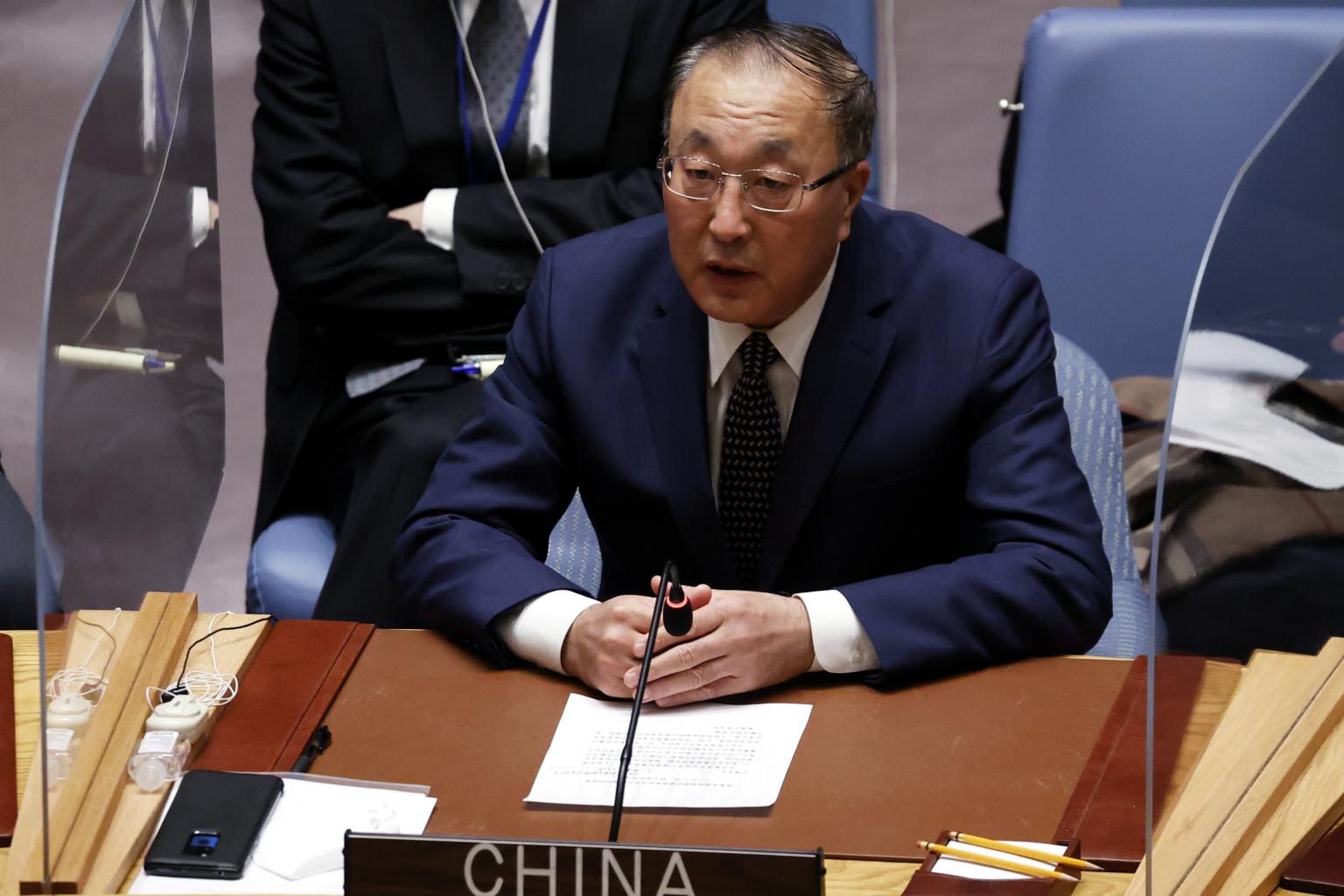China's delicate balancing act over Ukraine crisis
Sign up now: Get insights on Asia's fast-moving developments

At an emergency UN Security Council meeting on Monday, China's UN ambassador Zhang Jun again urged caution and for a peaceful resolution.
PHOTO: EPA-EFE
Follow topic:
BEIJING - Reluctant to wade into the Russian-Ukraine crisis, China is doing a delicate balancing act to show it is not taking sides but guided by its foreign policy.
At an emergency United Nations Security Council meeting on Monday (Feb 21), its UN ambassador Zhang Jun again called for caution and a peaceful resolution.
"All parties concerned must exercise restraint and avoid any action that may fuel tensions. We welcome and encourage every effort for a diplomatic solution," he told the meeting.
Beijing has been circumspect in its response to Russia's military build-up around Ukraine, repeatedly calling for dialogue.
But it surprised pundits and policymakers with a strong joint statement with Russia issued ahead of the Beijing Olympics that saw it piping up for the first time about the expansion of the North Atlantic Treaty Organisation (Nato), the US-led military alliance in Europe.
It has also warned the United States and Europe that Russia's "legitimate security concerns" should be addressed.
Chinese state media have been quick to blame the US for stoking tensions and playing up the threat of war.
But over the past weeks, there have been intense discussions within the Chinese leadership about how to handle the Ukraine crisis and what to do if a war breaks out.
Beijing's longstanding foreign policy dictates non-interference; it also needs to balance its strategic partnership with Russia against the US and Europe to keep relations with these Western powers from plunging further.
Last Saturday, Foreign Minister Wang Yi came out with a more explicit response at the Munich Security Conference, but still continuing to tread a fine line.
All countries' sovereignty, independence and territorial integrity should be respected and safeguarded, and "Ukraine is no exception", he said.
But Mr Wang also dismissed Nato as a product of the Cold War and questioned the impact of its expansion on Europe's stability.
Russia's "reasonable security concerns should be respected and taken seriously", he said, while urging the parties to return to the Minsk agreement - a ceasefire deal between Kyiv and Moscow signed in 2015 after Russia annexed Crimea - as "the only way out of the Ukrainian problem".
After Russian President Vladimir Putin on Monday recognised two separatist regions in eastern Ukraine as independent and ordered in troops, Mr Wang spoke with his US counterpart Antony Blinken.
China is concerned about the “worsening” situation in Ukraine, Mr Wang said on Tuesday, repeating his call for all parties to show restraint and resolve differences through dialogue.
The legitimate security concerns of any country should be respected, he told Mr Blinken in a phone call, according to a Chinese Foreign Ministry statement.
Foreign ministry spokesman Wang Wenbin, at a daily briefing on Tuesday, said China will “follow the merits of the matter” and maintain communication with all parties.
The Chinese embassy in Ukraine on Tuesday also issued a five-point advisory warning Chinese nationals to stay away from "unstable" areas and to stock up on food supplies. Countries such as the US, Germany and Britain have told their citizens to leave the country.

